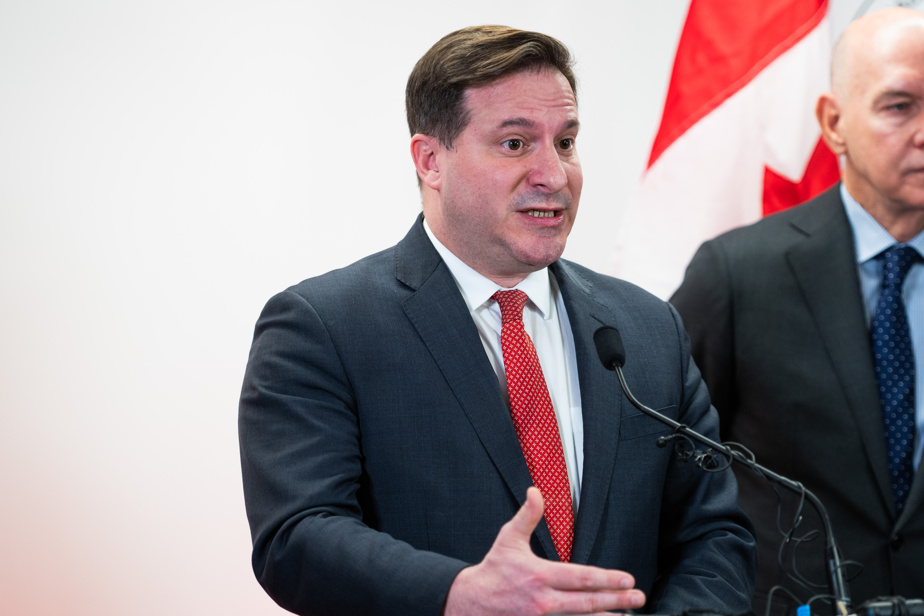(Ottawa) Canada will not offer blanket exemptions from terrorism laws for aid workers in countries such as Afghanistan, as this approach, taken by some of Canada’s allies, could be misused , according to the Minister of Public Security, Marco Mendicino.
“The approach outlined in Bill C-41 is the one that best mitigates the risks to potential terrorist actors,” Mr. Mendicino said during his testimony before the House Justice Standing Committee. House of Commons, Monday.
The minister came to answer questions from elected officials about the bill he tabled last month. It seeks to amend the Criminal Code to allow Canadian aid workers to carry out their duties in areas controlled by terrorists without being prosecuted for inadvertently aiding such groups.
This bill was introduced more than a year after some of Canada’s allies granted blanket exemptions for aid workers to continue their work in Afghanistan, in response to the Taliban takeover of Kabul in August 2021.
Canadian legislation takes a different approach than the United States, United Kingdom and European Union. It allows humanitarian workers to request an exemption to help people in crisis in a geographical area controlled by a terrorist group.
Humanitarian groups say, however, that more than a year ago, Global Affairs Canada warned them that buying goods or hiring local staff in Afghanistan would involve paying taxes to the Taliban, which would be considered by law as a financial contribution to a terrorist group.
Many aid groups welcomed the proposed change in Bill C-41, but Doctors Without Borders instead argued that Ottawa should grant aid workers a blanket exemption, rather than requiring groups to apply for permits.
“These amendments unfortunately create new bureaucratic hurdles for organizations to overcome,” the organization said in a press release last month.
Doctors Without Borders has also argued that the legislation could create an uneven approach, while recalling that if a group is denied a permit – even for administrative reasons – it will have to halt its activities.
“These amendments also contradict the fundamental principles of independence and impartiality of humanitarian assistance under international humanitarian law,” according to the body.
A cautious approach, according to the minister
During his testimony, Mr. Mendicino explained that Ottawa was concerned that a blanket exemption approach would allow terrorist groups to gain an advantage.
“Our government has considered all possible remedies, including the possibility of a humanitarian exemption to the existing law. However, a statutory waiver would not, in our view, provide the same security checks and balances and could lead to abuse of the provision,” Mr. Mendicino argued.
“We have to find that balance and do it in a way that promotes transparency and accountability, while maintaining the sense of urgency that I think unites all parliamentarians, for aid to get to Afghanistan. »
NDP Foreign Affairs Critic Heather McPherson rejected that argument. So she asked the minister why other countries have chosen to go ahead with blanket exemptions.
“Canada is the only country that has erected barriers for humanitarian organizations, instead of facilitating their work on the ground to help Afghans,” she said.
Conservative International Development Critic Garnett Genuis meanwhile asked Mendicino for an approximate timeline for the legislation to come into force.
The minister, however, merely said that requests for exemption would be processed quickly once the system is in place.
Afghanistan is struggling with growing malnutrition and an economy that has largely collapsed.
Humanitarian organizations, such as World Vision Canada, said they often need donations from the public to support their work in Afghanistan, but current laws prevent them from raising these funds.
These organizations have therefore been pushing for months for the Criminal Code to be amended, which MPs from all parties called for last June.
So far, the United States, United Kingdom, European Union and Australia have all granted blanket exemptions instead of requiring individual permits.
The federal budget passed last month provides $5 million for the current fiscal year to review applications and issue exemptions.

